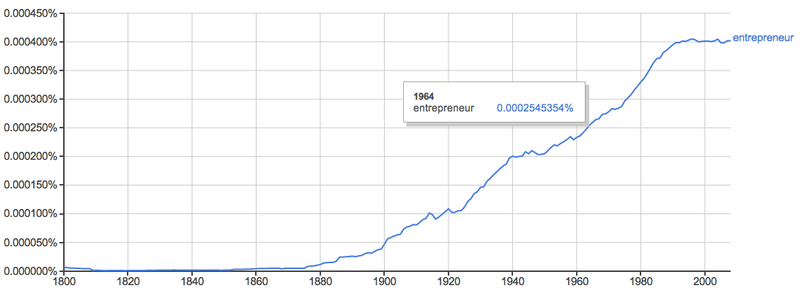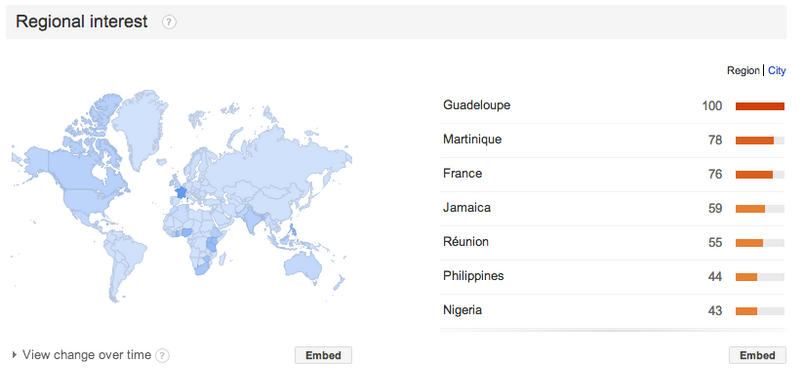I just got back from a Latin American adventure. On our first night in Panama, my colleague and I went out to a nice dinner and ended up seated next to a diplomat. When asked, I told him what I do for a living, and he said, “Well, how entrepreneurial of you!” My body tensed. I answered, “Yeah!” and laughed uneasily.
Less than a year prior, I quit my job, built a brand, developed a company plan, and nearly drained my savings account to get audience.io started up. A friend of mine helped design our business cards and the first draft read “Courtney Boyd Myers, Entrepreneur”. I cringed and said “Can we just go with Founder?”
Am I an entrepreneur?
After all, I had founded something. That much I was sure of; it is in my heart, from my brain, and I’ve welcomed a desire to create something that didn’t exist before, as well as a desire to control my career.
But labeling myself as an entrepreneur? Even now with a handful of members, two full-time strategists in New York and London, multiple part-timers, and 26 freelance writers on our employee roster, I feel awkward saying I’m an entrepreneur, and for that matter I don’t really feel like a chief, an executive, or an officer either.
Is it the English modesty that’s gotten to my head? No. I’m plenty confident and am very proud of my accomplishments. It has more to do with the saturation of the word in our culture. We live in a bubble where this four-syllabled word of French origins pops up multiple times a day. It’s going down the same route as “disruptive”, a word TechCrunch pulverized with its annual conferences and frothy panel sessions. Entrepreneur has become a cursory word thrown around by the media that perturbs even the moderately self-aware amongst us.
A quick temperature check on Secret reveals that people equate it with “douchey”, “salesy” and the hype machine. At Makeshift, we’re all a bit tired of the “entreprene-ugh”.
But aren’t we supposed to be championing risk takers and supporting startups in every way we can? Why all the negativity? In 2002, we’d roll our eyes when someone said they were a “financier”, why are we doing the same thing today with “entrepreneur”?
Who is an entrepreneur?
There are lots of real entrepreneurs out there. Richard Branson, Elon Musk, Coco Chanel, Henry Ford, Oprah Winfrey, James Dyson and Arianna Huffington. People who have disrupted entire industries with their boundless passion and hard work.
But, by its standard definition, you could call any startup founder or food truck owner an entrepreneur, and we are doing so at an increasing rate, according to Google.

Less than 24 hours on the ground in Panama, and I meet the Kalu Yala crew. Well, first I was sent their website, which reads: “A Sustainable Jungle Settlement for Entrepreneurs and Tropical Cowboys”. I was intrigued. But I was also embarrassed. “Sounds like they’re bussing a bunch of rich assholes into the jungle”, my coworker said, unimpressed.
So when we actually meet the founder of Kalu Yala, James Stice, we have to tell him that he’s making a horrible mistake with his website copy. Stice, who describes Kala Yalu as “a village that’s always in beta”, makes a very good point. He admits the copy is dated in his techy circle of friends but says that in order to get the attention of investors – the kind that hail from his hometown of Atlanta and invest on Wall Street not Sand Hill Road – he needs to use bold language that they’ll understand. He explains that what might be mocked on Valleywag is sometimes the only way to describe something to someone outside of our tech bubble.
Outside of our industry, the word entrepreneur is still widely used (probably because it hasn’t been misused yet), and what is even more interesting, is that the word is becoming more popular in developing countries, where the word inspires and opens doors.

Numbers represent search volume relevant to the highest point on the map, which is always 100 (Google).
Regardless of the country or industry you work in, the word entrepreneur isn’t very descriptive –it can be attributed to someone who built a crappy mobile app or someone who has built a Fortune 100 company – and is therefore not something you want to introduce yourself as at a cocktail party.
What’s really entrepreneurial?
So let’s lay down a few ground rules for activities that are and are not entrepreneurial:
Activities that are entrepreneurial include:
- Building a profitable company from scratch
- Taking your company public
- Solving a problem with an innovative solution that affects millions of people
- Repaying a business loan from your new business’s profits
- Buying 550 acres of jungle and turning it into a sustainable village
Activities that are NOT entrepreneurial include:
- Working in software
- Working in media (unless you’ve started a media empire)
- Borrowing money from your rich friends to start a company
- Speaking at conferences
- Hiring a mobile development company to build your app
At the end of the day, this discussion boils down to semantics; we all view the term differently because we’ve all had unique experiences with the word. It is high time we give the word entrepreneur the respect it deserves, or at the very least a little bit more breathing room. It is not a word to toss around. It is a word that is earned.
Editor’s note: This story was written by Courtney Boyd Myers and originally appeared here.




